Aging is an inevitable process that brings about various changes in our bodies and health. While some age gracefully without major health concerns, others may face a range of health issues that are more common in the elderly. For instance, https://www.forum-fuer-senioren.de/magazin/inkontinenz-ratgeber/ explores one of the most common health issues affecting seniors, which is incontinence. Understanding these common health issues can help individuals and caregivers take proactive measures to manage and mitigate their effects. Here are some prevalent health issues associated with aging.
Cardiovascular Diseases

Cardiovascular illnesses are among the most common health problems in older adults. As we age, the blood vessels and arteries tend to harden and narrow, making it harder for blood to flow through them. This can lead to high blood pressure and increase the risk of heart attacks and strokes. Regular check-ups, a heart-healthy diet, exercise, and medications can aid in managing and lowering the risk of cardiovascular diseases.
Cognitive Decline
Cognitive decline, including conditions like Alzheimer’s disease and other forms of dementia, is a major concern for older adults. These conditions can lead to memory loss, confusion, and changes in behavior and personality. While there is no cure for dementia, early diagnosis, and intervention can help manage symptoms and improve quality of life. Engaging in mentally stimulating activities, regular exercise, and a healthy diet help maintain cognitive function.
Vision and Hearing Loss
Age-related vision and hearing loss are common and can significantly impact quality of life. Conditions such as cataracts, glaucoma, and macular degeneration can impair vision, while presbycusis (age-related hearing loss) can make it challenging to hear high-frequency sounds and understand speech. Regular eye and ear check-ups, corrective lenses, hearing aids, and surgical interventions can help manage these conditions and improve sensory function.
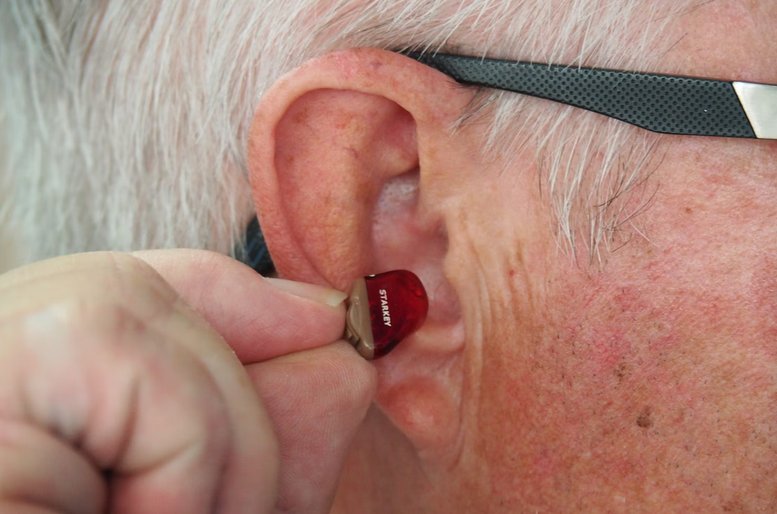
Gastrointestinal Issues
Digestive problems such as constipation, diverticulitis, and gastroesophageal reflux disease (GERD) are more common with age. These issues can result from a slower digestive system, changes in diet, and side effects from medication. Consuming a balanced meal high in fiber, staying hydrated, and regular physical activity can help maintain digestive health. Medications and medical interventions may also be necessary for managing severe symptoms.
Urinary and Prostate Problems
Urinary incontinence and benign prostatic hyperplasia (BPH) are common issues that affect the urinary system in older adults. These conditions can lead to frequent urination, difficulty urinating, and urinary tract infections. Lifestyle changes, pelvic floor exercises, medications, and surgical options can help manage urinary problems and improve quality of life.
Respiratory Diseases

Chronic respiratory diseases are common in older adults. These conditions can cause breathing difficulties, chronic cough, and reduced lung function. Avoiding smoking, managing exposure to pollutants, and using prescribed inhalers and medications can help control symptoms and improve respiratory health.
As we age, we become more susceptible to a range of health complications that can impact our quality of life. By understanding these common health problems and taking proactive measures to manage them, older adults can maintain their health and well-being. Regular medical check-ups, a healthy lifestyle, and staying informed about preventive measures can help mitigate the effects of aging and ensure a higher quality of life in the golden years.…



 One tip for preventing or easing constipation is ensuring you get enough fiber in your diet. Foods that are high in fiber add bulk to stools and help them pass more quickly through the digestive tract. Examples of good sources of fiber include fruits, vegetables, whole grains, legumes, nuts, and seeds. If you are the type of person who plans their meals ahead, try to incorporate more fiber-rich foods into your diet. Just make sure you increase your fiber intake gradually. This way, you will be able to prevent bloating, gas, and abdominal pain.
One tip for preventing or easing constipation is ensuring you get enough fiber in your diet. Foods that are high in fiber add bulk to stools and help them pass more quickly through the digestive tract. Examples of good sources of fiber include fruits, vegetables, whole grains, legumes, nuts, and seeds. If you are the type of person who plans their meals ahead, try to incorporate more fiber-rich foods into your diet. Just make sure you increase your fiber intake gradually. This way, you will be able to prevent bloating, gas, and abdominal pain. The last tip for preventing or easing constipation is to make sure you’re getting regular physical activity. Exercise helps to get your digestive system moving, which can help relieve constipation. Aim for at least 30 minutes of moderate-intensity exercise per day, such as walking, jogging, biking, swimming, dancing, or yoga. If you are mostly at home, you can watch some Youtube videos to get ideas for exercises. This is how people who work from home usually do.
The last tip for preventing or easing constipation is to make sure you’re getting regular physical activity. Exercise helps to get your digestive system moving, which can help relieve constipation. Aim for at least 30 minutes of moderate-intensity exercise per day, such as walking, jogging, biking, swimming, dancing, or yoga. If you are mostly at home, you can watch some Youtube videos to get ideas for exercises. This is how people who work from home usually do.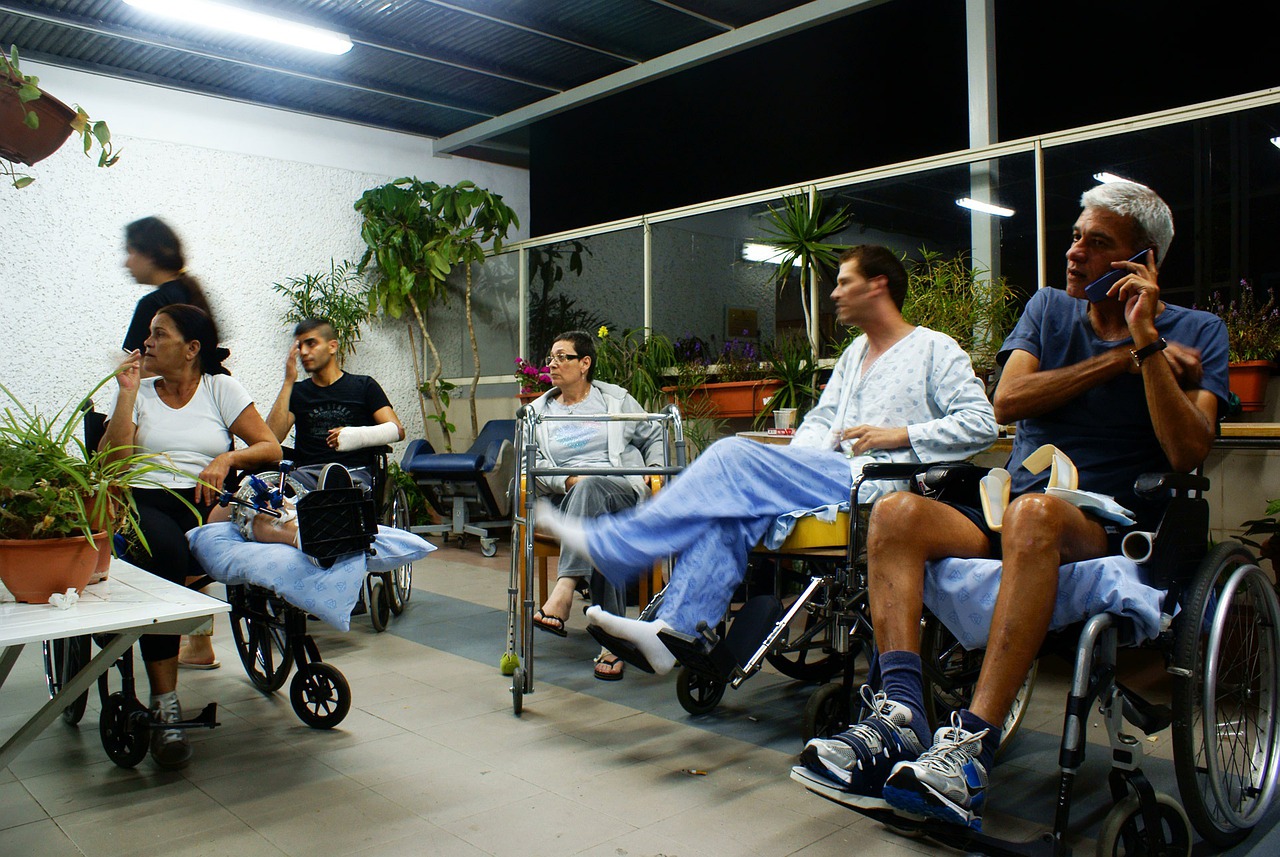
 The first reason to go to a rehabilitation center is that you will receive the best and most personalized care there. The staff at a rehabilitation center are experts in helping people recover from accidents, and they will be able to create a personalized care plan for you. They will also be able to provide you with the support that you need to make a full recovery. Not only that, but you’ll also have access to all of the latest rehabilitation technology. The staff at a rehabilitation center will be able to use the latest technology to help you recover from your injuries.
The first reason to go to a rehabilitation center is that you will receive the best and most personalized care there. The staff at a rehabilitation center are experts in helping people recover from accidents, and they will be able to create a personalized care plan for you. They will also be able to provide you with the support that you need to make a full recovery. Not only that, but you’ll also have access to all of the latest rehabilitation technology. The staff at a rehabilitation center will be able to use the latest technology to help you recover from your injuries. One of the best things about going to a rehabilitation center is that you can meet other people recovering from accidents. It can be a great way to get support and motivation from others in the same situation as you. You will be able to meet other people who have been through what you’re going through, and they will be able to understand what you’re going through. You will also be able to get support and motivation from the staff at the rehabilitation center.
One of the best things about going to a rehabilitation center is that you can meet other people recovering from accidents. It can be a great way to get support and motivation from others in the same situation as you. You will be able to meet other people who have been through what you’re going through, and they will be able to understand what you’re going through. You will also be able to get support and motivation from the staff at the rehabilitation center.
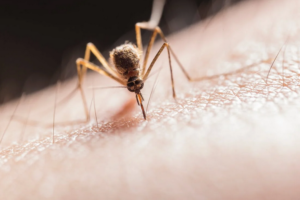 Imagine yourself stuck on an island, and your method of transportation fails you. The only thing you have to eat are the berries that grow on the island. You don’t know if they’re poisonous or not, so you decide to wait it out and see if anyone else gets sick from eating them. If nobody does, great! You can start munching away. But what if somebody does get sick? Now you know that those berries are poisonous and you can avoid them. The same goes for diseases – the more we know about them, the higher our chances are of surviving them.
Imagine yourself stuck on an island, and your method of transportation fails you. The only thing you have to eat are the berries that grow on the island. You don’t know if they’re poisonous or not, so you decide to wait it out and see if anyone else gets sick from eating them. If nobody does, great! You can start munching away. But what if somebody does get sick? Now you know that those berries are poisonous and you can avoid them. The same goes for diseases – the more we know about them, the higher our chances are of surviving them.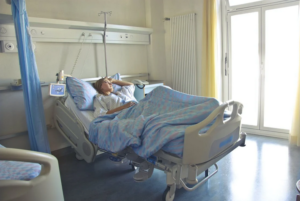 Diseases can be sneaky. They often start with mild symptoms that we might not even notice. But as they progress, they can become more severe and cause serious damage to our bodies. That’s why it’s vital to catch diseases early – the sooner we can diagnose them, the better. And knowing the different types of diseases can help us do just that. For example, if you start seeing spots on your skin, it could signify chickenpox. But it could also be something more serious, like measles. Knowing the difference can help you get the treatment you need quickly.
Diseases can be sneaky. They often start with mild symptoms that we might not even notice. But as they progress, they can become more severe and cause serious damage to our bodies. That’s why it’s vital to catch diseases early – the sooner we can diagnose them, the better. And knowing the different types of diseases can help us do just that. For example, if you start seeing spots on your skin, it could signify chickenpox. But it could also be something more serious, like measles. Knowing the difference can help you get the treatment you need quickly.
 Impotence is a term that is occasionally used, though it is losing favor. It’s not uncommon to have ED frequently. It’s something that many men experience when they’re under a lot of stress. On the other hand, frequent ED could be an indication of underlying health problems that need to be addressed. It could also be a sign of emotional or relationship issues that need to be handled by a professional.
Impotence is a term that is occasionally used, though it is losing favor. It’s not uncommon to have ED frequently. It’s something that many men experience when they’re under a lot of stress. On the other hand, frequent ED could be an indication of underlying health problems that need to be addressed. It could also be a sign of emotional or relationship issues that need to be handled by a professional.
 If you believe your body is deficient in testosterone hormones, you should see a doctor for a comprehensive examination. They will be able to advise you on the best treatment options for your specific ailment. A doctor can also give you a prescription that specifies which chemical compounds to seek for and which to avoid. Because every person’s body is different, you should check for allergies. You should be more alert if you have allergies to specific chemical components present in testosterone boosters.
If you believe your body is deficient in testosterone hormones, you should see a doctor for a comprehensive examination. They will be able to advise you on the best treatment options for your specific ailment. A doctor can also give you a prescription that specifies which chemical compounds to seek for and which to avoid. Because every person’s body is different, you should check for allergies. You should be more alert if you have allergies to specific chemical components present in testosterone boosters.
 Libido-enhancing herbal products can cure frigidity with no unwanted influence and assist girls to love their general sexual
Libido-enhancing herbal products can cure frigidity with no unwanted influence and assist girls to love their general sexual  Frigidity may manage medical therapy. But, it’s crucial to be aware there’s not any medical treatment to this day. The scientist remains in search to discover effective remedies for women’s libido and enjoyment. These will be able to help you find the origin of the distress. It’s a lot better to deal with frigidity with herbal remedies compared to synthetic compounds or medication.
Frigidity may manage medical therapy. But, it’s crucial to be aware there’s not any medical treatment to this day. The scientist remains in search to discover effective remedies for women’s libido and enjoyment. These will be able to help you find the origin of the distress. It’s a lot better to deal with frigidity with herbal remedies compared to synthetic compounds or medication.


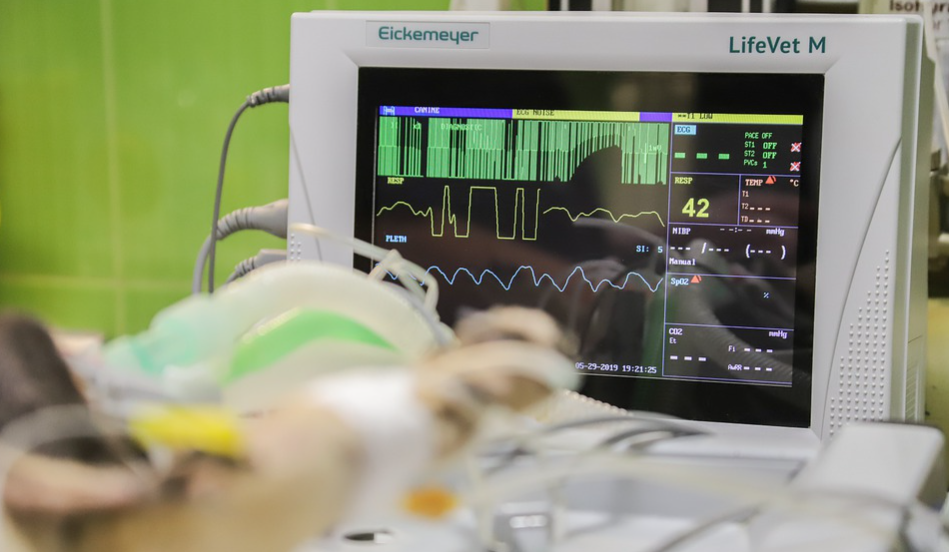
 Since it is essential to learn how to work on the synchronization of technology in healthcare, it would be great to know how one works. In this article, there would be some tips to work on EMR (an electronic medical record) simulation step by step to help the medical practice run smoothly. In this case, it is advisable to perform a soft launch of the entire process before the day of the actual implementation of the EMR in your practice. This simulation should replicate half of the practice’s operation day, from individual identification to exit. If your healthcare practice uses an electronic clinical management application, an evaluation day could demonstrate proper integration between EMR and EPM, such as the billing process.
Since it is essential to learn how to work on the synchronization of technology in healthcare, it would be great to know how one works. In this article, there would be some tips to work on EMR (an electronic medical record) simulation step by step to help the medical practice run smoothly. In this case, it is advisable to perform a soft launch of the entire process before the day of the actual implementation of the EMR in your practice. This simulation should replicate half of the practice’s operation day, from individual identification to exit. If your healthcare practice uses an electronic clinical management application, an evaluation day could demonstrate proper integration between EMR and EPM, such as the billing process. The surgery room site must have the ability to capture all patient records. Thus, it would be best to include those data in the simulation. Physicians can check the medical records on a laptop when a patient is about to check in for surgery. In this case, the surgeon can use the EMR to review the patients’ medical records before selecting the intraocular lens. This testing also has to include time in the operating room while also analyzing the same data in a monitor.
The surgery room site must have the ability to capture all patient records. Thus, it would be best to include those data in the simulation. Physicians can check the medical records on a laptop when a patient is about to check in for surgery. In this case, the surgeon can use the EMR to review the patients’ medical records before selecting the intraocular lens. This testing also has to include time in the operating room while also analyzing the same data in a monitor.

 Coffee contains a large number of antioxidants and other benefits that can improve your overall well-being. When individuals drink coffee, they get their regular dose of carbohydrates. Even if people eat the recommended variety of fruits and vegetables, they may not get the perfect amount of antioxidants. On the other hand, the body absorbs the best amount of antioxidants through coffee. There is no known treatment for any of these disorders. Therefore, prevention is very important. It is fascinating that the study also shows that caffeine can help sufferers.
Coffee contains a large number of antioxidants and other benefits that can improve your overall well-being. When individuals drink coffee, they get their regular dose of carbohydrates. Even if people eat the recommended variety of fruits and vegetables, they may not get the perfect amount of antioxidants. On the other hand, the body absorbs the best amount of antioxidants through coffee. There is no known treatment for any of these disorders. Therefore, prevention is very important. It is fascinating that the study also shows that caffeine can help sufferers. Drinking coffee can make you smarter than your friends who don’t drink coffee at all. Insulin is absorbed through the bloodstream and travels to the mind to improve brain function throughout the day. Drinking just one cup of java could keep you alert and confident. TIME writer Michael Lemonick explains that drinking caffeine enriches almost everything, such as a person’s attention span, memory, reaction time, logic, reasoning, and mood. These are some of the qualities associated with intellect.…
Drinking coffee can make you smarter than your friends who don’t drink coffee at all. Insulin is absorbed through the bloodstream and travels to the mind to improve brain function throughout the day. Drinking just one cup of java could keep you alert and confident. TIME writer Michael Lemonick explains that drinking caffeine enriches almost everything, such as a person’s attention span, memory, reaction time, logic, reasoning, and mood. These are some of the qualities associated with intellect.…

 Air pollution caused by certain chemicals, pesticides, and fungicides causes acute discomfort. Fungicide contamination can cause nerve damage and death. Pesticides such as DDT (dichloro-diphenyl-trichloroethane) can be toxic, enter our food chain, and eventually accumulate in our system. It can lead to kidney disease and problems with the mind and circulatory system. As mentioned before, it affects some aspects of human health, especially lung and heart. It is slightly inseparable not to relate air pollution to human health. It is because every second, human absorb air to breathe. Therefore, bad air quality could affect human health that might lead them to experience acute diseases.
Air pollution caused by certain chemicals, pesticides, and fungicides causes acute discomfort. Fungicide contamination can cause nerve damage and death. Pesticides such as DDT (dichloro-diphenyl-trichloroethane) can be toxic, enter our food chain, and eventually accumulate in our system. It can lead to kidney disease and problems with the mind and circulatory system. As mentioned before, it affects some aspects of human health, especially lung and heart. It is slightly inseparable not to relate air pollution to human health. It is because every second, human absorb air to breathe. Therefore, bad air quality could affect human health that might lead them to experience acute diseases.





 What better way to start training than beating your favorite songs and cheering you up? Honestly, you won’t find any. To transform your home gym experience from a few boring hours in the garage to a high-energy, soul-killing part of the evening, invest in a great program of classes. Time will fly by, and you won’t have to watch that pathetic speaker moan and groan anymore. So, get your stereo system, enjoy the music, and let the exercise begin.…
What better way to start training than beating your favorite songs and cheering you up? Honestly, you won’t find any. To transform your home gym experience from a few boring hours in the garage to a high-energy, soul-killing part of the evening, invest in a great program of classes. Time will fly by, and you won’t have to watch that pathetic speaker moan and groan anymore. So, get your stereo system, enjoy the music, and let the exercise begin.…
 Reduce Injury Risks
Reduce Injury Risks
 A personal trainer can guide you through the entire exercise program, personalize it, and make sure that what you do optimizes your fitness program. Giving you advice and guidance on the correct form and technique can help you get the most out of your fitness program. With a personal training session, you can shorten your fitness time by guiding you to use the right muscles in your body so you can exercise faster and not necessarily more.
A personal trainer can guide you through the entire exercise program, personalize it, and make sure that what you do optimizes your fitness program. Giving you advice and guidance on the correct form and technique can help you get the most out of your fitness program. With a personal training session, you can shorten your fitness time by guiding you to use the right muscles in your body so you can exercise faster and not necessarily more.

 Over the years,
Over the years,  Some medical marijuana breeds are nearly identical to the kind an individual would buy to get high. They supply you with the same euphoric sensation and transformation in judgment. Other extracts have been improved in a style that curbs the THC, concentrating on these cannabinoids. Such breeds of marijuana maintain all its health properties but don’t have much of an effect on an individual’s psychological condition.
Some medical marijuana breeds are nearly identical to the kind an individual would buy to get high. They supply you with the same euphoric sensation and transformation in judgment. Other extracts have been improved in a style that curbs the THC, concentrating on these cannabinoids. Such breeds of marijuana maintain all its health properties but don’t have much of an effect on an individual’s psychological condition.





 Regarding the packaging and storage of food in the freezer, there are different packaging types to choose from. You can pack food in many different types of freezer packaging, store it in aluminum, glass, or plastic containers, or even use some types of bags. When using transparency, it is best to use a thick film, as it is thick and does not break easily because of the thinner, more delicate films. The film is easy to label because you can compose it directly on the package with a Sharpie marker pen. Freezer paper is an excellent choice for packaging because it is suitable for connection to the freezer.
Regarding the packaging and storage of food in the freezer, there are different packaging types to choose from. You can pack food in many different types of freezer packaging, store it in aluminum, glass, or plastic containers, or even use some types of bags. When using transparency, it is best to use a thick film, as it is thick and does not break easily because of the thinner, more delicate films. The film is easy to label because you can compose it directly on the package with a Sharpie marker pen. Freezer paper is an excellent choice for packaging because it is suitable for connection to the freezer. They come in all shapes and sizes, along with airtight lids, and can also be strong enough to stack. In any case, it is better to work with labels than to write on containers and erase them. You can use glass containers, but they must be made of reinforced glass, specially designed to withstand freezing temperatures.
They come in all shapes and sizes, along with airtight lids, and can also be strong enough to stack. In any case, it is better to work with labels than to write on containers and erase them. You can use glass containers, but they must be made of reinforced glass, specially designed to withstand freezing temperatures.




 To help your child avoid bad eating habits, you can encourage your child to adopt decent eating habits. Three meals and two snacks a day can prevent your child from eating too much, so they will be less likely to eat a lot. By eating a healthy diet, this can help to change his or her habits. Serve a healthy meal for your child.
To help your child avoid bad eating habits, you can encourage your child to adopt decent eating habits. Three meals and two snacks a day can prevent your child from eating too much, so they will be less likely to eat a lot. By eating a healthy diet, this can help to change his or her habits. Serve a healthy meal for your child.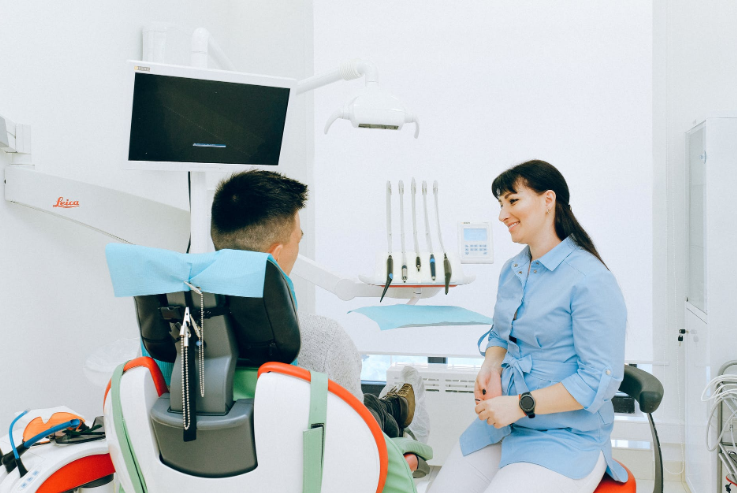



 It contains Omega-6 fatty acids, which are crucial for accelerating metabolism, and the only vegetable oil that has both the Omega-3 and 6. When taken, less fat is deposited within the bloodstream because it helps speed up metabolic rates.
It contains Omega-6 fatty acids, which are crucial for accelerating metabolism, and the only vegetable oil that has both the Omega-3 and 6. When taken, less fat is deposited within the bloodstream because it helps speed up metabolic rates.





